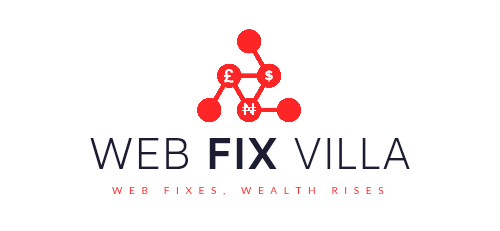
In Nigeria, unexpected expenses can hit you at any time—whether it’s a sudden medical bill, a job loss, a spike in fuel prices, or emergency car repairs. That’s why building an emergency fund isn’t just a good idea—it’s a financial necessity.
This guide explains what an emergency fund is, why every Nigerian should have one, and how to start building yours—even if you’re on a limited income.
1. What Is an Emergency Fund?
An emergency fund is a stash of money set aside to cover life’s unpredictable expenses. It acts as a safety net so you don’t have to borrow or panic when things go wrong.
💡 Think of it as your financial “fire extinguisher”—there for when things catch you off guard.
2. Why Every Nigerian Needs an Emergency Fund
Living in Nigeria comes with its fair share of surprises. Here’s why having a financial buffer is crucial:
✅ Job Loss or Pay Cuts
Unemployment can strike without warning—especially in volatile industries or during economic downturns.
✅ Medical Bills
Emergency health situations can arise, and most hospitals won’t treat you without a deposit.
✅ Inflation and Rising Costs
Prices of food, fuel, and transportation can surge unexpectedly, straining your budget.
✅ Family Obligations
You might be called upon to assist with school fees, rent, or unexpected ceremonies.
✅ Business Slowdowns
If you’re self-employed, periods of low sales or unexpected expenses can affect your cash flow.
💡 An emergency fund gives you breathing space and reduces money-related stress.
3. How Much Should You Aim to Save?
Start small and scale up as your income grows.
📌 Begin with ₦50,000 to ₦100,000.
📌 Work your way toward saving 3 to 6 months’ worth of basic living costs.
Example Budget:
- Rent: ₦40,000
- Feeding: ₦30,000
- Transport: ₦15,000
- Utilities: ₦10,000
👉 Total = ₦95,000/month
👉 Target = ₦285,000 for 3 months
💡 Even ₦500 saved consistently adds up—focus on progress, not perfection.
4. Best Places to Keep Your Emergency Fund
Your emergency savings should be easily accessible in case of urgent need—but not so accessible that you’re tempted to dip into it for non-essentials.
✅ Use:
- High-interest savings accounts (e.g., Kuda, Opay, VBank)
- Money market mutual funds (e.g., Cowrywise, PiggyVest, ARM, Stanbic IBTC)
- Fixed deposit accounts with flexible withdrawal options
❌ Avoid:
Storing it in your daily-use account or carrying it around in cash.
💡 The goal is to protect it from impulse spending and market risks.
5. Step-by-Step Guide to Building Your Emergency Fund
✅ Step 1: Set a Realistic Target
Start with a figure you can manage—₦20,000, ₦50,000, or ₦100,000.
✅ Step 2: Review Your Spending and Cut Costs
Look for areas to reduce expenses:
- Cook instead of eating out
- Limit unnecessary subscriptions
- Buy in bulk when possible
✅ Step 3: Automate Your Savings
Set automatic transfers weekly or monthly through apps like Kuda, Cowrywise, or PiggyVest.
💡 Automating savings removes the temptation to skip it.
✅ Step 4: Save Extra Income and Windfalls
Put part of any bonus, freelance income, or refunds into your emergency fund.
✅ Step 5: Don’t Touch It Unless It’s Urgent
Only dip into your fund for real emergencies—like medical bills, rent arrears, or urgent repairs.
Not for shopping sprees, aso ebi, or new gadgets 😄
6. Keeping Your Emergency Fund in Shape
✔️ Replenish any money you withdraw
✔️ Review your savings goal annually as your expenses change
✔️ Increase your savings rate as your income grows
💡 An emergency fund is not a one-time project—it’s a habit you maintain over time.
7. Final Thoughts: Protect Yourself from Life’s Financial Shocks
An emergency fund is your personal safety net. Whether you’re earning a modest salary or running a small business, having that financial cushion can prevent stress, panic borrowing, and unnecessary debt.
Key Reminders:
✔️ Start with what you have—small amounts add up.
✔️ Keep the money in a secure, separate place.
✔️ Make saving automatic.
✔️ Only use it when it’s truly necessary.
💡 Start today, even if it’s just ₦1,000. Your future self will thank you for it.














